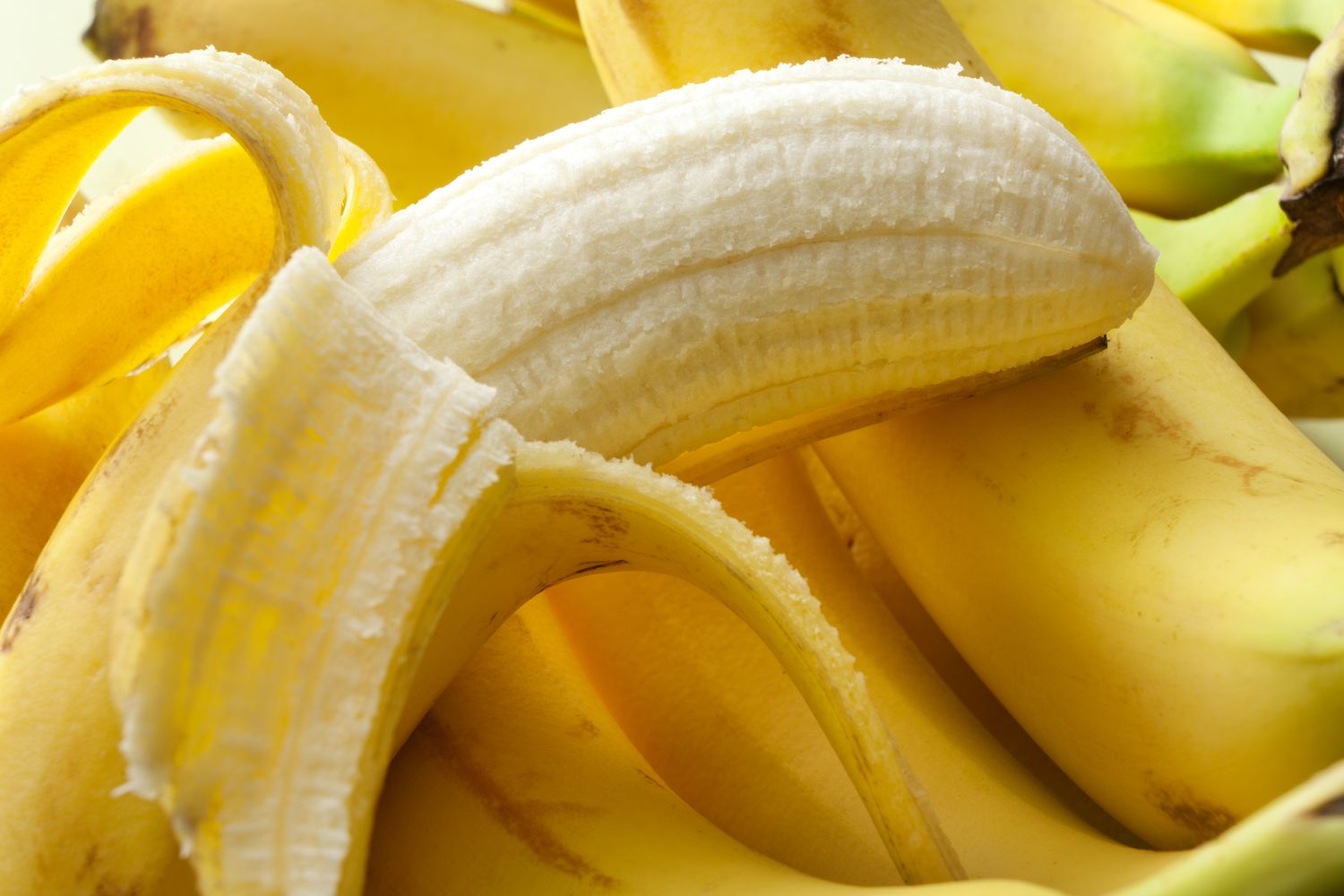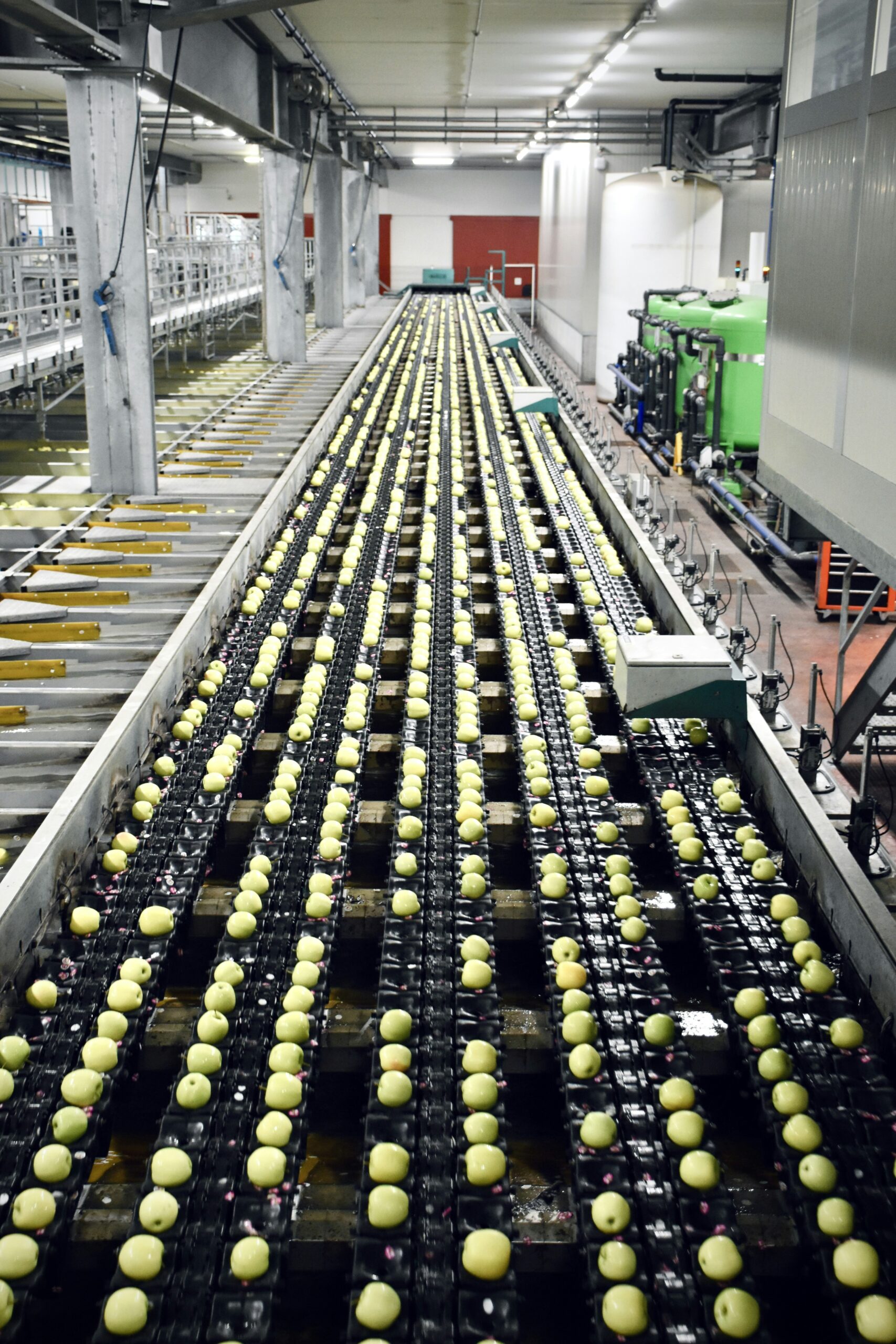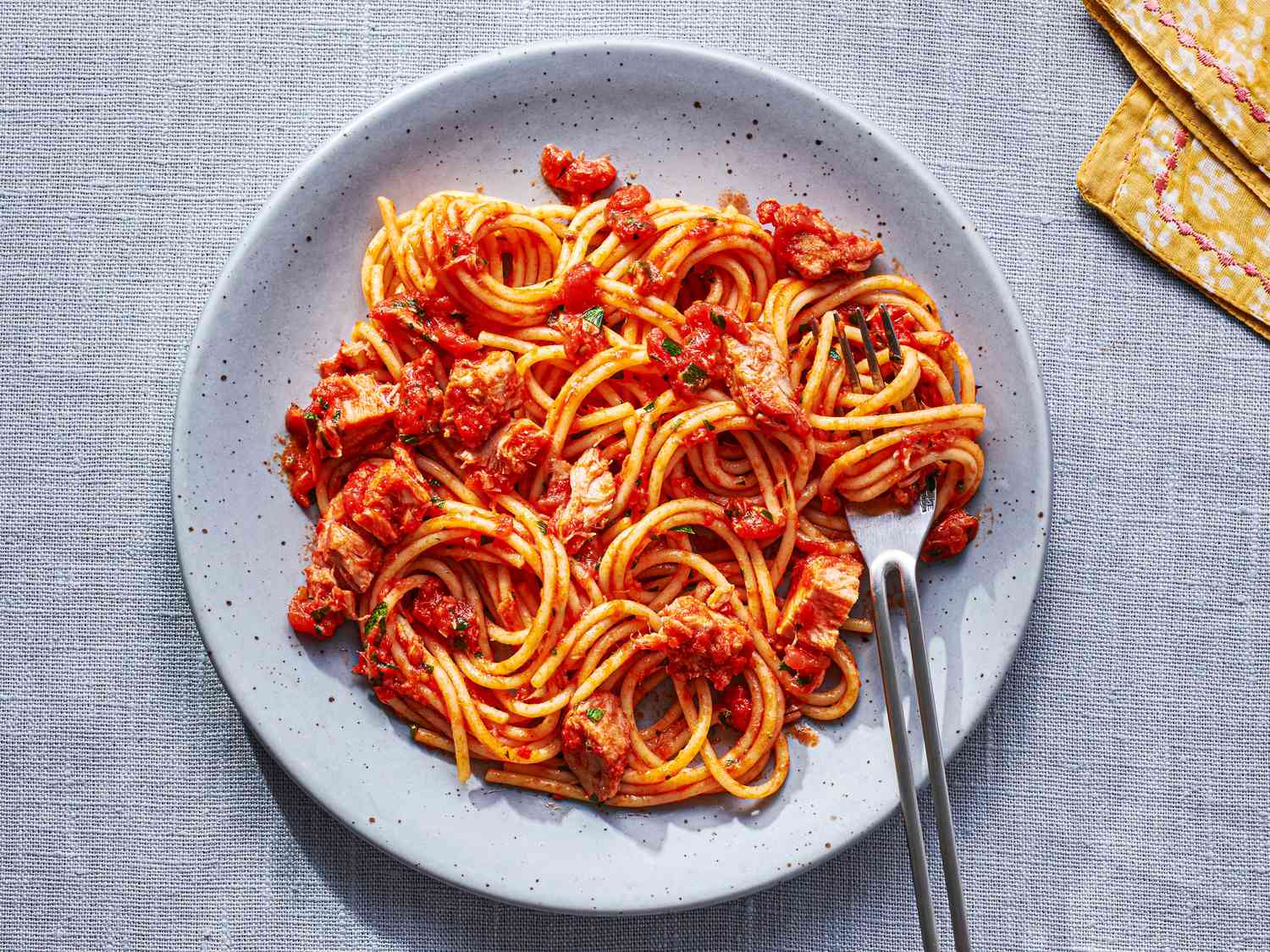A banana typically takes about 2 to 4 hours to digest.
The time it takes for a banana to digest can vary from person to person and depends on several factors, including an individual’s metabolism, overall health, and what else they have eaten with the banana.
Generally, it typically takes about 30 minutes to 2 hours for a banana to be digested in the stomach. The digestion process continues in the small intestine, where the nutrients from the banana are absorbed into the bloodstream.
Consuming a banana on an empty stomach typically results in quicker digestion compared to eating it with other foods that are more complex or slow to digest.
The Digestive Process
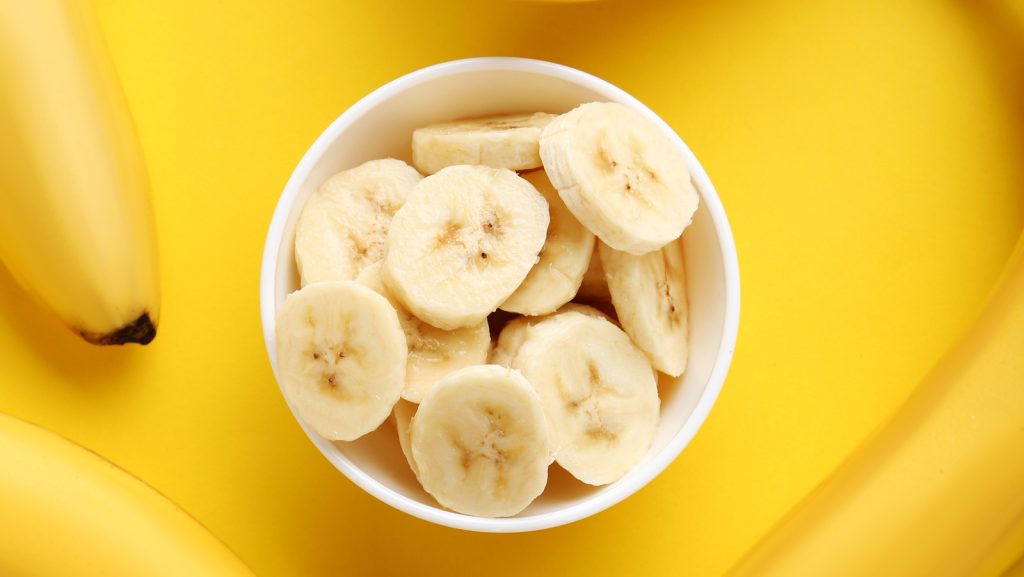
The human digestive system is a sophisticated network of organs and structures that play a crucial role in breaking down food into absorbable nutrients for the body’s utilization.
The digestion process involves several stages, including ingestion, mastication, digestion, absorption, and elimination. Let’s start with an overview of the human digestive system before delving into how digestion begins in the mouth.
Overview of the Human Digestive System
Mouth: The digestion process commences in the mouth through mastication (chewing) and the release of enzymes in saliva.
Pharynx: The chewed food is then swallowed and passes into the throat or pharynx.
Esophagus: From the pharynx, food travels down the esophagus to the stomach through a process called peristalsis, which involves rhythmic muscle contractions.
Stomach: In the stomach, gastric juices, including hydrochloric acid and pepsin, help further break down food into a semi-liquid mixture called chyme.
Small Intestine: In the small intestine, where most digestion and nutrient absorption take place, chyme enters. To aid in this process, the pancreas and liver release digestive enzymes and bile.
Pancreas: The pancreas secretes enzymes such as amylase, lipase, and proteases to break down carbohydrates, fats, and proteins.
Liver: The liver produces bile, which emulsifies fats, aiding in their digestion and absorption.
Small Intestinal Villi: The small intestine is lined with tiny finger-like structures called villi, which increase the surface area for nutrient absorption into the bloodstream.
Large Intestine (Colon): Any remaining undigested food and water enter the large intestine, where water is absorbed, and waste material is formed into feces.
Rectum: Feces are stored in the rectum until they are eliminated from the body through the anus.
Now, let’s focus on how digestion begins in the mouth:
Digestion Begins in the Mouth:
Ingestion: Digestion initiates upon food ingestion. In the mouth, chewing or mastication breaks down food into smaller, more manageable pieces.
The teeth play a vital role in this process by mechanically grinding and breaking down the food into smaller fragments.
Salivary Glands: The salivary glands in the mouth secrete saliva, which contains enzymes, primarily amylase. Amylase breaks down carbohydrates, such as starches, into simpler sugars like maltose. This enzymatic action starts the chemical digestion of carbohydrates in the mouth.
Mixing and Lubrication: Saliva not only contains enzymes but also helps moisten and lubricate the food, making it easier to swallow and move through the digestive tract.
Saliva also contains mucus, which aids in forming a cohesive food bolus that can be easily transported to the stomach.
Swallowing: Once the food is thoroughly chewed and mixed with saliva, it is formed into a soft, moist ball called a bolus. The tongue and muscles in the pharynx push the bolus toward the esophagus, initiating the process of swallowing.
In summary, digestion begins in the mouth with mastication, the mechanical breakdown of food, and the secretion of enzymes, such as amylase, in saliva to start the chemical breakdown of carbohydrates.
This pre-digestion process prepares the food for further digestion in the stomach and small intestine, where other enzymes and digestive juices continue the breakdown of different nutrients.
Banana Composition
Bananas, a well-loved and nutritious fruit, provide an array of essential nutrients. Below, we’ll explore the nutritional composition of a standard medium-sized banana (approximately 118 grams) and how it impacts the process of digestion.
Carbohydrates:
- Bananas consist predominantly of carbohydrates, primarily in the form of natural sugars. A medium-sized banana contains roughly 27 grams of carbohydrates, with a significant presence of glucose, fructose, and sucrose.
- These carbohydrates provide a quick source of energy, making bananas a good choice for a pre-or post-workout snack.
Fiber:
- Bananas serve as a valuable source of dietary fiber, with a medium-sized banana providing around 3.1 grams of fiber. This dietary fiber, particularly in the form of pectin, offers benefits for digestive well-being.
- It helps promote regular bowel movements and may help prevent constipation. Furthermore, the fiber in bananas fosters a feeling of fullness and assists in regulating blood sugar levels by delaying the absorption of sugar.
Vitamins:
- Vitamin C: Bananas contain a modest amount of vitamin C (ascorbic acid), which serves as an antioxidant, safeguarding cells and bolstering the immune system.
- Vitamin B6: Bananas are abundant in vitamin B6 (pyridoxine), a vital component in metabolism that facilitates the conversion of food into energy. Additionally, it supports both brain development and function.
Minerals:
- Potassium: Bananas are renowned for their elevated potassium content, with a medium-sized banana typically containing about 400-450 milligrams of potassium.
- Potassium is crucial for preserving the body’s fluid balance, enabling proper nerve function, and facilitating muscle contractions. Moreover, it plays a role in blood pressure regulation and can lower the risk of stroke.
Banana Composition and Digestion:
Carbohydrates: The high carbohydrate content in bananas provides a quick source of energy. The natural sugars in bananas are easily digestible and can be rapidly absorbed, making them an excellent choice for a snack before or after physical activities.
Fiber: The fiber content in bananas, particularly pectin, contributes to their digestibility by promoting healthy digestion.
Fiber contributes to stool bulk, aiding in bowel movement regulation and preventing constipation. Additionally, it moderates sugar absorption, resulting in a gradual rise in blood glucose levels.
Vitamins and minerals in bananas, like vitamin B6 and potassium, are essential for metabolism and overall health.
They don’t directly influence digestion but are essential in maintaining the body’s functions.
In summary, the nutritional composition of bananas, with their carbohydrates, fiber, vitamins, and minerals, supports both quick energy release and digestive health.
The carbohydrates provide a rapid energy source, while the fiber aids in regular bowel movements and blood sugar regulation.
Additionally, vitamins and minerals contribute to overall well-being.
Stomach Digestion
The role of the stomach in digesting a banana
Mechanical Digestion: When you consume a banana, it enters the stomach through the esophagus. In the stomach, strong muscular contractions churn and mix the banana with gastric juices.
This mechanical action helps break the banana down into smaller, partially digested fragments, forming a semi-liquid mixture called chyme.
Chemical Digestion: The stomach also secretes gastric juices that contain hydrochloric acid (HCl) and pepsin.
Hydrochloric acid helps create an acidic environment in the stomach, which is essential for activating pepsin, an enzyme that primarily breaks down proteins.
While a banana is not a significant source of protein, the presence of pepsin still plays a role in overall digestion.
Delayed Carbohydrate Digestion: The carbohydrates in the banana, mainly sugars like glucose, fructose, and sucrose, continue to be digested in the stomach.
However, most carbohydrate digestion takes place in the small intestine when pancreatic enzymes are released.
Regarding the estimated time it takes for a banana to be broken down in the stomach, it can vary from person to person and depends on factors such as individual metabolism, the ripeness of the banana, and the presence of other foods in the stomach.
Generally, it takes about 2-4 hours for the stomach to empty into the small intestine.
The small intestine serves as a vital location for nutrient absorption within the digestive system, where a significant portion of the nutrients from bananas and other foods are absorbed.
Let’s explore how nutrients from a banana are absorbed in the small intestine and discuss the time frame for this absorption:
Carbohydrates (Sugars):
- Carbohydrates from the banana, such as glucose, fructose, and sucrose, are broken down into simpler sugars during digestion in the stomach and the initial part of the small intestine.
- In the small intestine, specific enzymes like maltase, sucrase, and lactase further break down these sugars into their simplest form (e.g., glucose, fructose, and galactose).
Fats:
- While bananas have minimal fat content, if consumed alongside other fatty foods, the fats are primarily processed and absorbed in the small intestine.
- The liver makes bile stored in the gallbladder, aiding in fat breakdown for better enzyme function, including lipases.
- Lipases are responsible for breaking down fats into glycerol and fatty acids. These resultant products are subsequently absorbed into the intestinal cells, specifically in the jejunum and ileum.
- Inside the intestinal cells, fats are reassembled into triglycerides and packaged into structures called chylomicrons, which are transported through the lymphatic system before entering the bloodstream.
Vitamins and Minerals:
- Many vitamins and minerals in the banana are absorbed in the small intestine.
Water-soluble vitamins like vitamin C and B vitamins enter the bloodstream directly, while fat-soluble vitamins such as A, D, E, and K absorb along with dietary fats and enter the lymphatic system.
- Various minerals, such as potassium and magnesium, are also absorbed in the small intestine.
The time frame for nutrient absorption in the small intestine is relatively efficient. Nutrient absorption begins almost immediately after chyme from the stomach enters the duodenum (the first section of the small intestine).
The exact time it takes for nutrient absorption can vary but is generally quite rapid, with most nutrients being absorbed within a few hours.
However, it’s important to note that nutrient absorption is a continuous process and occurs as chyme progresses through the entire length of the small intestine, which is about 20 feet (6 meters) long.
The duodenum and jejunum are particularly significant sites for absorption, while the ileum plays a role in absorbing specific nutrients and vitamin B12.
Factors Affecting Digestion
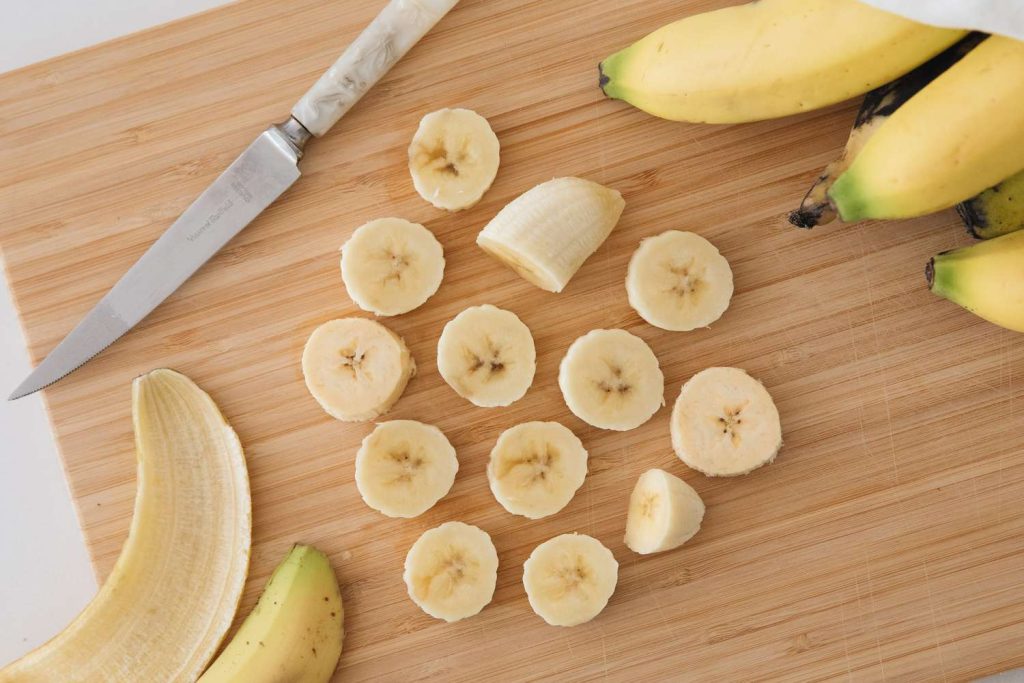
Factors that can influence banana digestion time
The digestion time of a banana can be influenced by several factors, including the banana’s ripeness, individual differences, and the presence of other foods consumed alongside it. Here’s how these factors can impact digestion:
Ripeness of the Banana:
- Ripe bananas are generally easier to digest than unripe ones. As a banana ripens, the starches in it are converted into simpler sugars like glucose and fructose. These sugars are more easily broken down and absorbed during digestion.
- Unripe bananas, on the other hand, contain resistant starch, which can take longer to digest. Resistant starch acts more like dietary fiber and may pass through the small intestine undigested, potentially affecting the overall digestion time.
Individual Differences:
- Digestion times can vary from person to person. Some individuals may have a more efficient digestive system and can process foods more quickly, while others may experience slower digestion.
- Factors such as age, overall health, gut microbiome composition, and gastrointestinal conditions can all influence the rate of digestion.
How Other Foods Consumed Alongside A Banana Can Impact Digestion.
- The presence of other foods consumed alongside a banana can affect its digestion time. For example, if you eat a banana as part of a larger meal, the overall composition of the meal will impact the time it takes for the banana to be digested.
- Fats, proteins, and fiber from other foods in the meal may slow down the digestion of the banana. The combined effect of various nutrients and macronutrients can influence the overall transit time through the digestive system.
- Additionally, certain foods may interact with the banana in the stomach and small intestine, potentially affecting the digestion and absorption of specific nutrients.
Individual Health and Gastrointestinal Conditions:
- Suppose an individual has specific gastrointestinal conditions, such as irritable bowel syndrome (IBS), Crohn’s disease, or celiac disease. In that case, their digestion may be impacted, and the time it takes to process foods like bananas can be longer or shorter, depending on the condition.
- Some individuals may have allergies or intolerances to certain components of a banana, such as fructose or dietary fiber, which can lead to digestive discomfort and altered digestion times.
Portion Size:
- The size of the banana or the portion of the banana consumed can affect digestion. Smaller portions are generally digested more quickly than larger ones.
In summary, the digestion time of a banana can be influenced by factors such as its ripeness, individual differences, the presence of other foods in the meal, and individual health or gastrointestinal conditions.
While bananas are generally considered easy to digest, these factors can contribute to variations in digestion times.
FAQs
How fast does a banana digest?
The digestion of a banana typically takes about 30 minutes to 2 hours, depending on various factors such as the individual’s metabolism, overall diet, and digestive health. Bananas are relatively easy to digest due to their high water content, simple carbohydrates, and soluble fiber content. However, the exact digestion time can vary from person to person.
Why do bananas digest relatively quickly?
Bananas digest quickly due to their high water content and simple carbohydrates.
Does the ripeness of the banana affect digestion time?
Yes, riper bananas tend to digest more quickly than unripe ones.
Can eating other foods alongside a banana affect its digestion time?
Yes, the digestion time of a banana can be influenced by the foods consumed with it. Simple foods may digest more quickly than complex ones.
How does the digestive system break down a banana?
Digestion begins in the mouth with enzymes and chewing, and then the stomach acids further break down the banana.
What nutrients are absorbed from a banana during digestion?
The nutrients in a banana that are absorbed include carbohydrates, vitamins (like vitamins C and B6), minerals (like potassium), and fiber.
Do the health benefits of a banana change depending on digestion time?
The health benefits of a banana remain the same regardless of digestion time, as the nutrients are eventually absorbed and utilized by the body.
Can bananas cause digestive issues like bloating or gas?
Some individuals may experience digestive discomfort with bananas, but this varies from person to person.
Are there any special recommendations for individuals with digestive issues?
People with sensitive digestive systems may find it helpful to consume ripe bananas, which are generally easier to digest.
Is it safe to consume bananas before exercise or bedtime?
Yes, it is generally safe to consume bananas before exercise or at bedtime.
Conclusion
In conclusion, the digestion of a banana is a complex process that involves mechanical and chemical actions in the mouth, further breakdown and processing in the stomach, and the primary absorption of nutrients in the small intestine.
The time it takes for a banana to be digested can vary depending on factors such as ripeness, individual differences, the presence of other foods in the meal, and overall health.
Ripe bananas are typically easier to digest, while unripe bananas containing resistant starch may take longer to process.
Individual variations in digestive efficiency, age, and gastrointestinal health can also influence digestion times.
Consuming a banana alongside other foods, particularly those rich in fats, proteins, or fiber, can slow down the overall digestion process. Therefore, the duration of digestion for a banana is not fixed and can vary from person to person.







